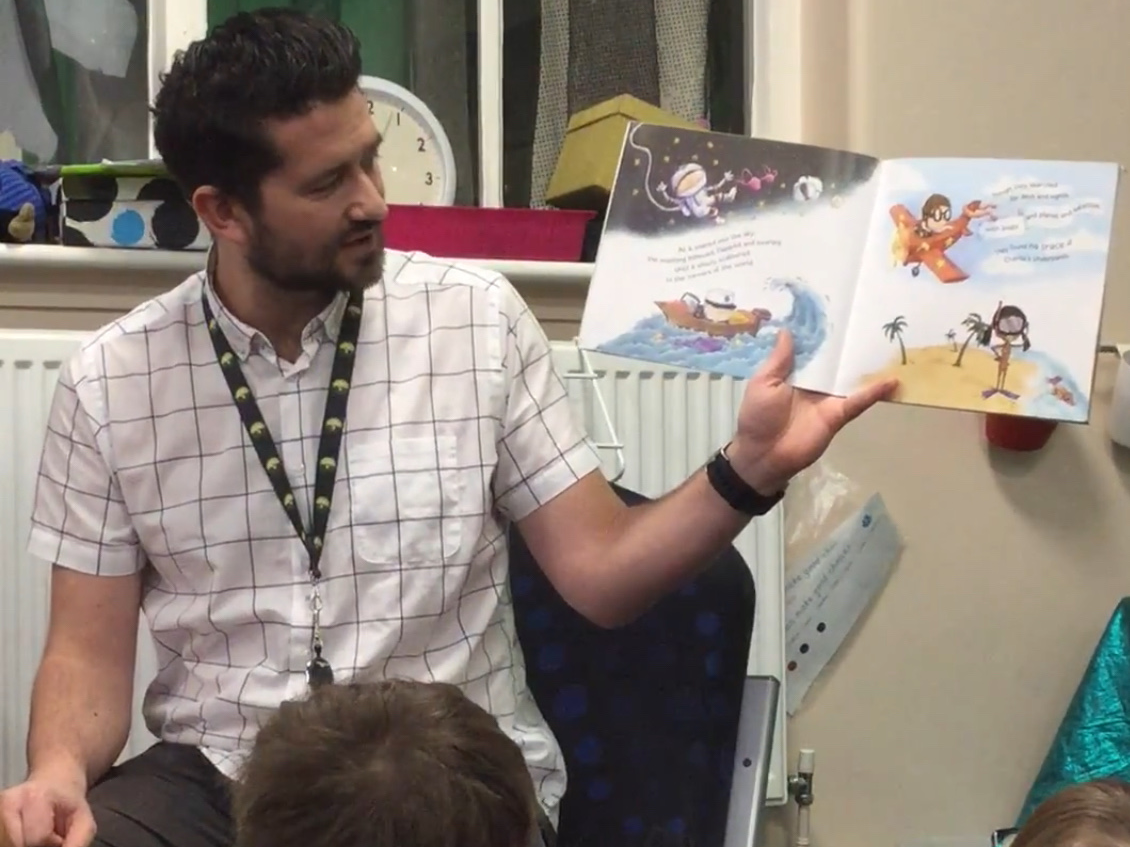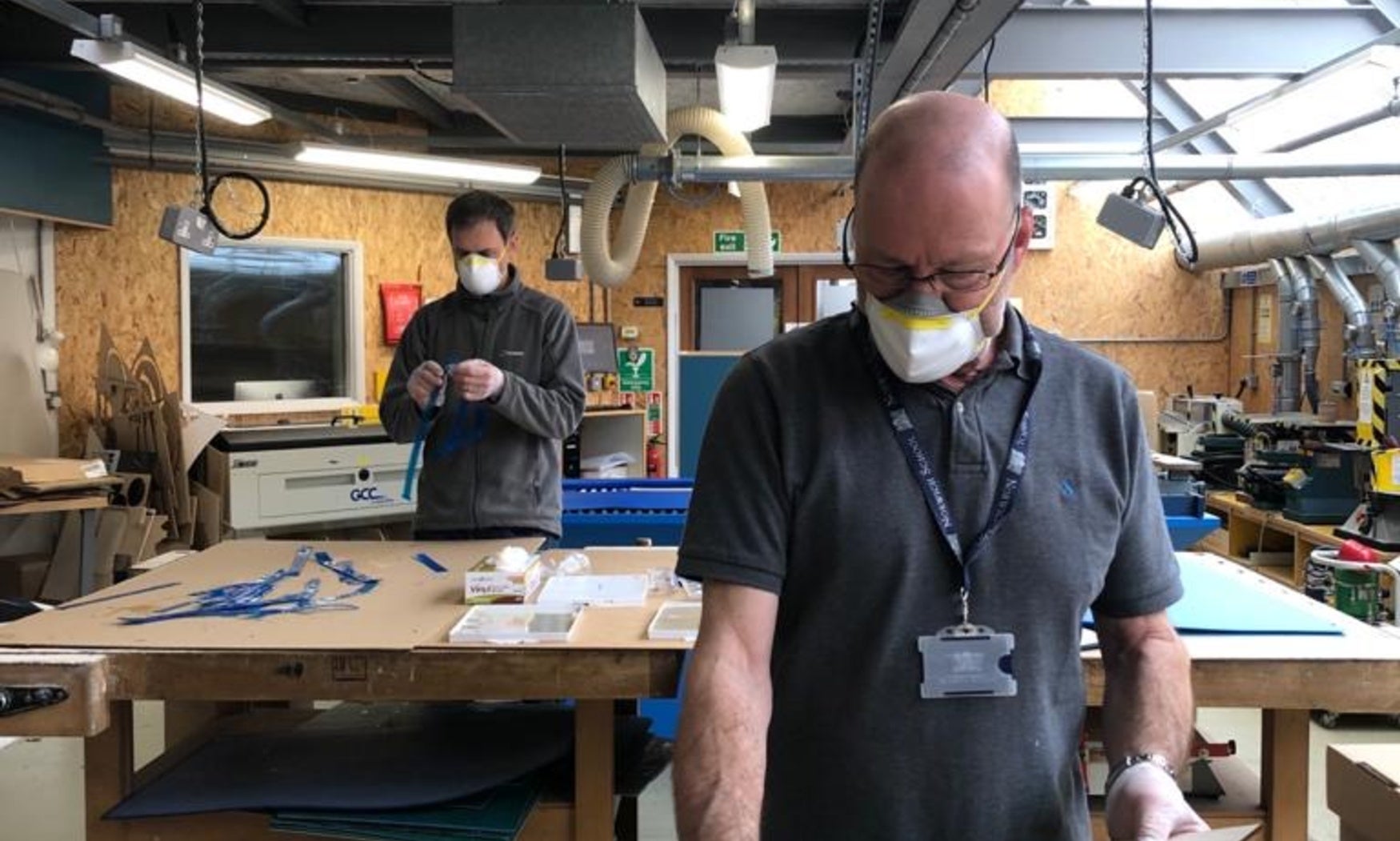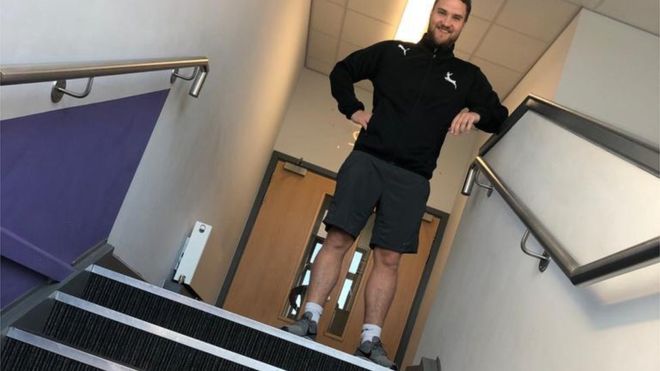Video lessons, virtual choirs and fridge deliveries: How hero teachers have gone above and beyond during coronavirus crisis
'You get into education because you want to make a difference to children’s lives, and that means you help out beyond the classroom,' teachers tell Colin Drury


It was a Saturday morning when the family support team at Oakhill Primary School in Stoke received a message from a parent struggling through the coronavirus lockdown.
The household fridge had been broken for a week, she said. They couldn’t afford to get it fixed, and had no way of keeping essentials fresh. She wondered if the team – a three-person group set up to support the most socially disadvantaged pupils – had any advice.
What happened next was a remarkable example of how teachers and school staff across the UK have been going above and beyond in these most difficult of times.
The support team sent a message relaying the plea to an all-staff group. By Saturday afternoon, the assistant headteacher had posted a speculative note to his neighbourhood Facebook page asking if anyone had a second-hand fridge going spare. Within the hour, a neighbour had replied saying there was one sitting in her garage if it could be of use.
“So, on Sunday morning, the school’s site supervisor rocked round in his van, collected the fridge, and took it to the family,” Matthew Hales, that assistant headteacher, tells The Independent today. “All sorted within 24 hours.”
In fact, not quite all sorted.
Realising that the family would have an expensive initial outlay on stocking the new device, another teacher organised a small shop for them. That was sent round on Monday.
As the country continues to wrestle with the Covid-19 crisis, certain groups of workers have stepped up to be counted in a way that has been a privilege to witness.
NHS staff, of course, but delivery drivers, supermarket assistants, refuse collectors and postal workers have all shown themselves to be among this backbone of Britain.
And key among these have been teachers and school support staff.
Tasked with the unprecedented job of continuing to educate and provide pastoral stability despite the not inconsiderable detail that schools themselves have largely been shut, they have shown a creativity and resourcefulness which, a critic might suggest, has been lacking in government.
Staff have rewritten entire courses and curricula for remote learning, and transformed their own lounges and spare bedrooms into makeshift video classrooms.They have organised virtual choirs and uploaded daily story times onto YouTube. It is worth stressing that many teachers continue to put their own health at risk by going into school to supervise those vulnerable pupils and children of key workers who must still attend in person.
Crucially, they have done all this while doubling down on their commitments to serve the surrounding communities.
Food banks have been organised for vulnerable locals and kitchens transformed to cook dinners for people in self-isolation. At least three schools have turned empty design departments into makeshift PPE factories – the Norwich School is currently supplying masks to the NHS. One teacher, Luke Tantum at Glenbrook Primary in Nottingham is walking up and down the school staircase 852 times – the equivalent of scaling Ben Nevis, Snowdon and Scafell Pike – to raise funds for the FareShare food charity.
“Good teachers go the extra mile constantly,” says Hales again. “Let’s be honest, this isn’t a profession you get into for the prestige or pay. You do it because you want to make a difference to children’s lives, and that means you help out beyond the classroom. Coronavirus hasn’t changed that but it’s perhaps highlighted what we always do anyway.”
Nonetheless, Oakhill – a 400-pupil centre serving a ward ranked in England’s top 25 per cent most deprived – has innovated in a whole range of ways during the current crisis.
Because of concerns that few youngsters would have sustained access to online resources, they printed out two weeks worth of activities on the evening the schools lockdown was announced and sent them home with children the next day. Since then, they have used the post to distribute occasional worksheets, games and reading material.
Story time, meanwhile, has been recreated by the staff on YouTube. Every day at 3.30pm, a new 10-minute video of a teacher reading a story is posted there. Think CBBC’s Bedtime Stories but starring, for instance, Ms Dawes instead of Tom Hardy.
Such innovation has been key to trying to ensure a sense of normality, reckons Darren Northcott, national officer for education with the National Association of Schoolmasters Union of Women Teachers.
Examples abound, he says, of science teachers encouraging basic home experiments (such as what floats in the kitchen sink), and of art teachers using toilet rolls and cereal boxes for creative time. Sixth form careers advisors have remained available for advisory sessions with year 11 and 13 pupils who are now preparing for the next stage of their lives from lockdown.
“The way teachers have quickly and effectively responded to such challenging circumstances and have continued to engage children has been inspiring,” says Northcott. “I’m hearing from so many parents saying just how much they appreciate the efforts. Families are under huge amounts of pressure at the moment and I think teachers have helped ease that by creating some sense of normality.”
Certainly, this is something Emma Beaton, head of music at Sandringham School in St Albans wanted to achieve when she set up its first ever virtual choir from the piano in her living room.
“We have a really strong tradition of singing at the school with five choirs,” she says today. “And the thought of that just abruptly ending was too much.”
So, she took it online.
Now, one lunchtime every week, 50 or so pupils from year seven up to year 13 meet in a Google classroom to belt out their favourite songs together.
“The response from the students has been overwhelming,” says Beaton. “I think they enjoy that continuity with something familiar. It’s fun. We sing and chat. It can’t replace the real thing but it’s very effective.”
Will there be a virtual concert at some point? There may be technical challenges with that, she says, but, if the lockdown goes on for a significant period, “you never know”.

Technical challenges are something Ed Cann faced, too.
He’s the art and design teacher at the Norwich School who realised the laser cutting equipment there could be repurposed to make protective face visors.
He sourced material, got the machinery running, and has since produced some 6,000 pieces of equipment in four weeks. So good is the stuff, it’s now being used at the Norfolk and Norwich University Hospitals, as well as by a bunch of different GP surgeries and hospices. Local businesses have stepped forward to sponsor the scheme and keep it running.
“It’s been humbling to be able to help,” says Steffan Griffiths, principal at the 1,000-student independent centre. “Clearly, it’s important that we all play our part during what is an unprecedented crisis. As a school, we’re determined to do what we can.”
To that tune, he adds, the kitchens have been kept running amid the wider closure to provide daily meals which are then delivered to some of the city’s most vulnerable residents.
“It’s important to remember that when we talk about school staff, it’s not just teachers,” says Griffiths. “We have 300 people working here – including kitchen staff but also support staff and teaching assistants – and they are all absolutely committed to the students and to the area.”

All of which, however, still leaves a central fundamental question.
While staff have adapted to the issues of remote teaching and to shifts supervising the few children still physically attending, they remain in the dark about what happens from here. Suggestions the government is looking to reopen schools as one of its first steps out of the lockdown have caused some concerns – Education Secretary Gavin Williamson said on Wednesday that schools in England could be reopened in a "phased manner" but gave no start date.
The NASUWT has demanded that before such a decision is made, teachers must be equipped with appropriate protective equipment and guidelines on how to achieve social distancing in the classroom. Several staff across the country have already died after being diagnosed with Covid-19 and, while there is no evidence they picked up their illness at work, questions of safety remain paramount.
Five conditions of return – including anti-viral cleaning and recognition as key workers – have been set out by the union in a letter to Mr Williamson.
Yet, back with Matthew Hales in Stoke, he is, like many teachers, a little conflicted by the extent to which PPE should be used in the classroom.
His concern is that putting the adults in face masks and overalls would unnerve younger children to a point that it has a significant and potentially long-lasting emotional impact.
“It’s hard,” he says. “As staff, we need to keep safe and we also need ensure children aren’t taking viruses back home to potentially vulnerable family members but you don’t want to be stressing them out unnecessarily. Coming into a classroom where you can’t see the teacher’s face could frighten younger children. There are no easy solutions.”
Either way, he says, he longs for the day when he can get back to some semblance of normality. Every teacher The Independent speaks to says the same.
“You spend all day every day with these kids, and you become invested in their futures,” says Hales. “To suddenly stop seeing them and not knowing when that will change, it’s difficult. You miss them.”
Read the rest of the Britain's Backbone series here: ‘I wouldn’t let an animal use the toilets that we’ve got to’: Delivery drivers fear lack of protection as they work through coronavirus pandemic
And here: ‘What if I kill someone at a funeral?’ Undertakers struggle to cope with coronavirus death toll and shortage of PPE
Join our commenting forum
Join thought-provoking conversations, follow other Independent readers and see their replies
Comments